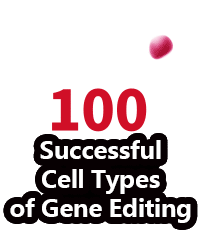A new study has discovered a novel means by which bacterial colonies in the small intestine support the generation of regulatory T cells--immune cells that suppress autoimmune reactions and inflammation.
2020-04-20A trident can make spearfishing more of a sure thing. Similarly, a T cell engineered to brandish three prongs—chimeric antigen receptors (CARs)—can kill cancer cells more efficaciously than single-pronged or even double-pronged CAR T cells, let alone ordinary, unmodified T cel…
2020-04-17A new diagnostic test to quickly and easily monitor kidney transplant patients for infection and rejection relies on a simple urine sample and a powerful partner: the gene-editing technology CRISPR.
2020-04-16Scientists at Children's Hospital of Philadelphia (CHOP) say they have pinpointed a genetic variation responsible for driving the development of inflammatory bowel disease (IBD). The genetic pathway associated with this variation is involved in other immune disorders, suggesting t…
2020-04-15Scientists at the University of California-San Diego say they have moved one step closer to the ability to make heparin in cultured cells. Heparin is a potent anti-coagulant and the most prescribed drug in hospitals, yet cell-culture-based production of heparin is currently not po…
2020-04-14Repairing neurological damage has never been an easy task for scientists and physicians but remains the ultimate goal for much of the research in neuroscience. For instance, transplanting neuronal stem cells into damaged or diseased areas of the brain has been touted as a potentia…
2020-04-13In cancer genomics, researchers are "really missing a lot of things by not looking for them in the right way," says Shruti Iyer, a PhD candidate in the Genetics Program at Stony Brook University. In a recent talk in New York*, Iyer, who is pursuing her doctoral research in Dr. W. …
2020-04-10Unless you a re a bacterium, you may want to go PAMless. PAMs, or protospacer adjacent motifs, are what bacteria use to distinguish their own DNA from invasive viral DNA. That is, PAMs help spare bacterial DNA from being cut apart by the bacterial immune system known as CRISPR . P…
2020-04-09Researchers have made a major breakthrough in developing gene-editing tools to improve our understanding of one of the most important ocean microbes on the planet. The international project unlocks the potential of the largest untapped genetic resource for the development of natur…
2020-04-08